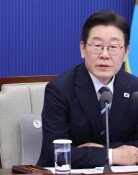Private Institutes Beginning to Offer Experience-Oriented Education. School Doing What?
Private Institutes Beginning to Offer Experience-Oriented Education. School Doing What?
Posted December. 05, 2002 22:38,
Private educational institutes have been criticized. People have believed that they have just produced machines for testing. Now, the institutes are coming up with an educational program centered around the idea of culturing, not teaching, students.
At a glance, the change looks recommendable. In substance, some worry, the public schooling system would eventually hand over to the private institutes what a school is meant to do. In addition, the 7th Educational Program focusing on the creative learning has been introduced to high schools this year. Furthermore, this year`s Korean SAT contained numerous questions requiring students think deep to solve them. Therefore, as some point out, the new approach of the institutes would lead to creation of "admissions-oriented culturing education."
▽ Experience-oriented education in vogue = Wonin Hakwon, an educational institute specializing in social science-related subjects, is giving its students an opportunity to draw a map of Daechi Dong themselves. It also provides a program named Court of History. Under the program, students are given a topic and later debate over the topic. In other times, students assume the roles of stockbrokers and buyers, and learn from making "transactions."
Son Bin, owner of the Hakwon, said, "From 2005, the Korean SAT will offer many optional subjects, which in turn requires in-depth knowledge and thinking power on the part of students. Therefore, we are preparing our students for the possible new trend."
Last month, Academy of Science Geniuses, a private institute, opened in Daechi Dong. The academy has its elementary school students perform each and every experiment in their textbook, and record their own logs. It is an impossible way of teaching at a regular public school.
In addition, some institutes are offering debating times to their students. The students are required to read assigned books and have a debate about it. Only in Daechi Dong, Apgoochung Dong and Chamwon Dong, 20 institutes of the kind are mushrooming.
Some of these brand-new institutes, however, pay to buy community points for their students. One math institute, for example, donates some portion of the fees collected each month to Korea Social Welfare Association, since donation of money is deemed as performance of community service itself. It is not what the community service is meant to be.
▽ Schools off guard? = Ministry of Education and Human Resources introduced the 7th Educational Program to elementary schools in 2000, and to high schools this year. The program stresses development of culture and creativity of a student. Under the slogan "No more on texts," it focuses on creativity and autonomy. But school districts give a cold shoulder to the initiative.
First of all, in the small experiment room of each school, it is practically impossible to conduct each and every experiment in the book. One senior high school teacher said, "We have no conference room or auditorium wherein students can conduct a debate. We spend more than 10 minutes just to arrange tables for debating. From next year, students can make their own curricula. If students choose subjects involving experiments, we cannot accommodate them. Actually, it is not clear whether we will offer those subjects at all."
Nonetheless, the ministry just said, "We are making efforts to help schools adjust themselves to the new system. We will hold workshops to make it work."
In-Jik Cho cij1999@donga.com



![연금 개시 가능해지면 年 1만 원은 꼭 인출하세요[은퇴 레시피]](https://dimg.donga.com/c/138/175/90/1/wps/NEWS/IMAGE/2026/02/20/133390850.4.jpg)



